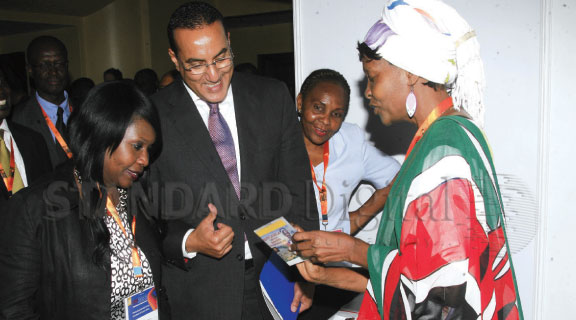×
The Standard e-Paper
Home To Bold Columnists
 |
| Environment Cabinet Secretary Judi Wakhungu (left) and Mining Cabinet Secretary Najib Balala (second left) are briefed by one of the exhibitors during the Mining conference at Safari Park Hotel, Nairobi. [PHOTO: GOVEDI ASUTSA//STANDARD] |
By Ally Jamah
KENYA: Kenya may have hit a jackpot in its mega discoveries of huge oil, gas and other lucrative minerals that have the potential to transform the country’s fortunes.